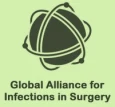
Combating antimicrobial resistance (AMR) has become a top priority for global policy makers and public health authorities. New mechanisms of resistance continue to emerge and spread globally, threatening our ability to treat common infections.
An effective and cost-effective strategy to reduce AMR should involve a multi-faceted approach aimed at optimizing antibiotic use, strengthening surveillance and infection prevention and control, and improving patient and clinician education regarding the appropriate use of antibiotics. Although the current magnitude of the problem and its extent in both the community and the hospital adds to the complexity of any intervention, these are still necessary as healthcare workers play a central role in preventing the emergence and spread of resistance.
All healthcare workers should be aware of their role and responsibility for maintaining the effectiveness of current and future antibiotics specifically by:
- Following locally-developed customized antibiotic guidelines and clinical pathways
- Supporting and enhancing infection prevention and control including correct hand hygiene protocols
- Supporting and enhancing surveillance of antibiotic resistance and antibiotic consumption
- Prescribing and dispensing antibiotics only when they are truly required
- Identifying and controlling the source of infection
- Prescribing appropriate antibiotics(s) with adequate dosages i.e. administration of antibiotics according to pharmacokinetic-pharmacodynamic principles
- Reassessing treatment when culture results are available
- Using the shortest duration of antibiotics based on evidence
- Educating staff how to use antibiotics wisely
